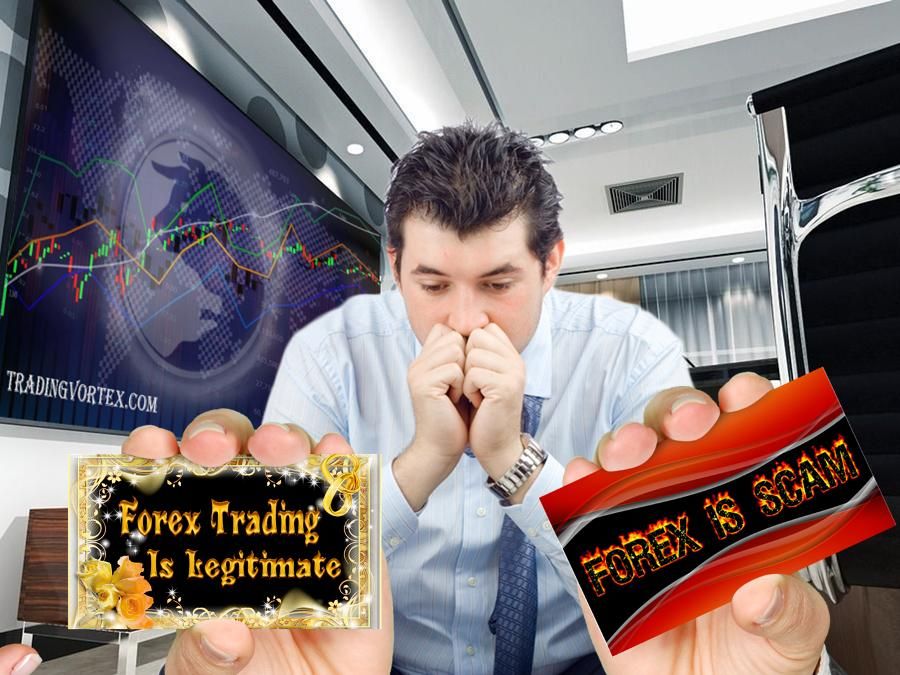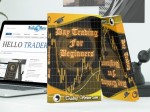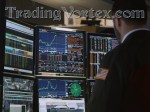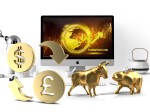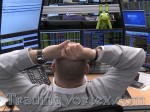Table Of Contents:
- Forex Trading: What it Involves?
The Legitimacy of Forex Trading:
Forex Trading Scams:
How to Safely Participate in Forex Trading?
The Bottom Line:
Forex Trading: What it Involves?
Forex trading is the process of buying and selling currencies with the goal of making a profit. The Forex market is the largest financial market in the world, with a daily trading volume of over $6 trillion. In this section, we will discuss how Forex trading works, who participates in the market, and the importance of understanding Forex market hours and trading sessions.
Explanation of how Forex trading works:
Forex trading involves the exchange of one currency for another at an agreed-upon price. Currencies are traded in pairs, with the value of one currency relative to another being determined by the forces of supply and demand. For example, if the EUR/USD pair is trading at 1.2000, it means that 1 euro can be exchanged for 1.2000 U.S. dollars.
Traders can profit from Forex trading by buying a currency pair at a low price and selling it at a higher price, or by selling a currency pair at a high price and buying it back at a lower price. This process is known as going long or going short, respectively.
The Forex market operates 24 hours a day, 5 days a week, with Trading Sessions occurring in different time zones around the world. This means that traders can participate in the market at any time, although market conditions and volatility can vary depending on the time of day.
Discussion of Forex market participants:
The Forex market is made up of a diverse range of participants, including banks, multinational corporations, hedge funds, and individual traders.
- Banks are the largest participants in the Forex market, accounting for over 40% of daily trading volume.
- Multinational corporations use the Forex market to exchange currencies to pay for goods and services in different countries.
- Hedge funds and other institutional investors use the market to hedge against currency risk or to speculate on price movements.
- Individual traders, also known as retail traders, make up a growing segment of the Forex market. Retail traders can access the market through Forex Brokers, who provide trading platforms and access to liquidity providers. With the rise of online trading platforms, retail traders have become increasingly able to participate in the Forex market from anywhere in the world.
Overview of Forex market hours and trading sessions:
The Forex market operates 24 hours a day, 5 days a week, with trading sessions occurring in different time zones around the world. The market opens in Sydney, Australia on Monday morning local time and closes in New York on Friday evening local time.
There are four major Forex trading sessions: the Sydney session, the Tokyo session, the London session, and the New York session. Each session overlaps with the one before and after it, creating continuous market activity. The most active trading hours are during the overlap of the London and New York sessions.
Understanding the different trading sessions and the impact of time zones on market activity is important for traders who want to effectively manage their trades and capitalize on potential market opportunities. Additionally, traders need to be aware of how changes in market conditions, such as news releases or economic events, can impact trading during different sessions. For more details you can read "The Best Times to Trade the Forex Markets" article.
In conclusion, understanding how Forex trading works, who participates in the market, and the importance of Forex market hours and trading sessions is essential for anyone looking to participate in Forex trading. With this foundational knowledge, traders can begin to develop their own trading strategies and navigate the complexities of the Forex market with confidence.
The Legitimacy of Forex Trading:
Forex trading is a legitimate financial activity that is subject to regulation in many countries around the world. In this section, we will discuss the regulatory environment for Forex trading, the role of regulatory bodies, and the credibility of Forex brokers and traders. We will also explain the risks involved in Forex trading.
Overview of the regulatory environment for Forex trading:
Forex trading is a global market that is regulated by various regulatory bodies in different countries and regions. These regulatory bodies aim to provide a framework for a fair and transparent market, as well as to protect the interests of traders and investors.
United States:
In the United States, Forex brokers are regulated by two main regulatory bodies:
- The Commodity Futures Trading Commission (CFTC): is a federal agency that regulates the derivatives market, including Forex trading.
- The National Futures Association (NFA): is a self-regulatory organization that works alongside the CFTC to oversee Forex brokers and trading activities.
United Kingdom:
In the United Kingdom, the Financial Conduct Authority (FCA) is the primary regulatory body for Forex brokers and trading activities. The FCA has a set of rules and guidelines that brokers must follow to ensure the safety and integrity of the market.
The FCA regulations cover a wide range of topics, including capital requirements, reporting standards, client protection, and dispute resolution. Forex brokers operating in the UK must also comply with anti-money laundering (AML) and know your customer (KYC) requirements.
European Union:
In the European Union, Forex trading is regulated by the Markets in Financial Instruments Directive (MiFID II). This directive sets out rules and guidelines for investment firms, including Forex brokers, to ensure fair and transparent trading practices.
MiFID II regulations cover a wide range of topics, including client classification, disclosure of conflicts of interest, and transparency requirements. Forex brokers operating in the EU must also comply with AML and KYC requirements.
Other Regions:
Forex trading is regulated in many other regions around the world, including Asia, Australia, and Canada. Each region has its own regulatory bodies and rules that Forex brokers must follow to ensure the safety and integrity of the market.
Overall, the regulatory environment for Forex trading is designed to protect traders and investors from fraudulent activities, promote fair and transparent trading practices, and ensure the stability of the market. However, it is important to note that regulations can vary widely between different regions and countries, and traders should always do their due diligence to ensure they are working with a reputable and compliant Forex broker.
Analysis of the role of regulatory bodies:
Regulatory bodies have a multifaceted role in ensuring the legitimacy of Forex trading, and their importance cannot be overstated. Here are some additional points that shed light on the significance of regulatory bodies in Forex trading:
- By setting and enforcing standards for capital requirements, reporting standards, and client protection, regulatory bodies help to create a level playing field for market participants and promote fair competition.
Regulatory bodies also help to prevent market abuse, such as insider trading, market manipulation, and front running. This, in turn, enhances market integrity and fosters trust among investors.
The regulatory environment is dynamic and is shaped by various factors, including economic and political developments. Regulatory bodies must stay vigilant and adapt to changes in the market to ensure their regulations remain relevant and effective.
The collaboration between regulatory bodies at the national and international levels is critical to achieving effective regulation. This is particularly important for cross-border transactions and activities that can pose challenges to regulatory oversight.
Regulatory bodies’ effectiveness in protecting traders and promoting market integrity can be enhanced by the use of advanced technologies such as artificial intelligence, blockchain, and big data analytics.
While excessive regulation can be counterproductive, regulatory bodies can strike a balance between protecting traders and promoting innovation by adopting a risk-based approach to regulation. This approach involves focusing regulatory resources on areas of high risk while adopting a lighter touch in areas where risks are low.
Regulatory bodies also have a role in educating traders and investors on the risks and opportunities associated with Forex trading. By providing information and guidance, regulatory bodies can empower traders to make informed decisions and avoid fraudulent activities.
Discussion of the credibility of Forex brokers and traders:
To further enhance the discussion on the credibility of Forex brokers and traders, it's worth noting that the lack of proper regulation and oversight in some regions can make it easier for unscrupulous brokers and traders to operate. In these cases, traders should exercise extra caution and thoroughly research the broker or trader before investing any funds.
Additionally, transparency is a key aspect of building credibility in the Forex market. Reputable brokers and traders should be open and honest about their business practices and provide clear information about their fees, commissions, and trading policies. They should also provide access to detailed transaction histories and account statements.
Another important factor to consider is the security of funds and personal information. Reputable Forex brokers and traders should use industry-standard security protocols to protect their clients’ funds and personal data from cyber threats and hacking attempts.
Ultimately, the credibility of Forex brokers and traders is a critical component of the trust that traders place in the market. By choosing a reputable and trustworthy broker or trader, traders can reduce the risk of falling victim to fraudulent activities and ensure the integrity of their investments.
Explanation of the risks involved in Forex trading:
Forex trading can be a potentially rewarding investment opportunity, but it also comes with inherent risks that traders need to be aware of. Here are some details on the different types of risks involved in Forex trading:
- Market Risk: This is the most common type of risk in Forex trading and refers to the risk of losing money due to fluctuations in the value of currency pairs. The Forex market is highly volatile and subject to sudden and unpredictable price movements. This means that traders must constantly monitor the market and be prepared to act quickly in response to sudden changes.
- Counterparty Risk: This refers to the risk of losing money due to the default or insolvency of a trading partner. Forex brokers act as intermediaries between traders and the market, which means that traders are exposed to counterparty risk if their broker defaults or becomes insolvent.
- Operational Risk: This refers to the risk of loss due to errors or malfunctions in trading platforms, systems, or processes. Technical issues such as server downtime, network connectivity problems, or software bugs can all lead to significant losses for traders.
To mitigate these risks, traders should take a number of precautions, including:
- Conducting thorough research before choosing a Forex broker: Traders should choose a broker that is regulated by a reputable regulatory body, has a good track record, and has a strong reputation in the industry.
- Using risk management tools: Traders should use tools such as stop-loss orders and limit orders to limit their exposure to market risk.
- Diversifying their portfolio: Traders should not put all their eggs in one basket and should diversify their portfolio by investing in different currency pairs and asset classes.
- Staying up-to-date with market news and events: Traders should stay informed about economic and political developments that can impact the Forex market.
In conclusion, Forex trading is a legitimate financial activity that is subject to regulation in many countries around the world. Regulatory bodies play a crucial role in ensuring the legitimacy and credibility of the market, and traders must be aware of the risks involved in trading activities. By understanding the regulatory environment, the role of regulatory bodies, and the risks involved in Forex trading, traders can make informed decisions and engage in trading activities with confidence.
Forex Trading Scams:
Forex trading scams are a serious concern in the industry. While there are many legitimate Forex brokers and traders in the market, there are also unscrupulous individuals and companies that engage in fraudulent activities to deceive traders and steal their money. In this section, we will provide an overview of common Forex scams and frauds, discuss the tactics used by scammers to lure unsuspecting traders, and explain how to identify and avoid Forex trading scams.
Overview of common Forex scams and frauds:
Forex trading scams and frauds are becoming increasingly common, and traders must be aware of the risks involved in the market. Some of the common Forex trading scams and frauds include:
- Signal Sellers: These are individuals or companies that claim to have insider knowledge of the Forex market and promise to provide profitable trading signals for a fee. However, their signals are often inaccurate or unreliable, and traders end up losing money.
- Ponzi schemes: These are fraudulent investment schemes in which returns are paid to earlier investors using the capital of newer investors. In Forex trading, Ponzi schemes are often disguised as managed accounts or investment funds that promise high returns but end up collapsing, causing significant losses to investors.
- Fake Forex brokers: These are individuals or companies that pose as legitimate Forex brokers but are actually fraudsters who steal traders’ money. They may use fake credentials or regulatory licenses to appear legitimate and attract unsuspecting traders.
- Automated trading scams: These are scams that involve the use of automated trading systems or robots that promise to make profitable trades on behalf of the trader. However, many of these systems are ineffective or fraudulent, and traders end up losing their investments.
- Fake investment schemes: These are schemes that promise high returns on Forex investments but are actually fraudulent. These schemes often use high-pressure sales tactics and false promises to convince traders to invest their money.
Discussion of the tactics used by scammers to lure unsuspecting traders:
Forex trading scammers use a variety of tactics to lure unsuspecting traders. Some of these tactics include:
- Offering unrealistic returns: Scammers often promise high returns that are unrealistic or unsustainable in the Forex market.
- High-pressure sales tactics: Scammers may use high-pressure sales tactics to convince traders to invest their money quickly without taking the time to research or consider the investment.
- Impersonating legitimate companies: Scammers may impersonate legitimate Forex brokers or companies to appear legitimate and attract unsuspecting traders.
- Using false testimonials: Scammers may use false testimonials or reviews to convince traders that their system or product is legitimate.
- Offering free products or services: Scammers may offer free products or services to attract traders and then use these offerings to scam them.
Explanation of how to identify and avoid Forex trading scams:
To identify and avoid Forex trading scams, traders should take the following steps:
- Research the company or individual: Traders should research the company or individual before investing any money. They should check for regulatory licenses and credentials and look for reviews and testimonials from other traders.
- Avoid unrealistic returns: Traders should be wary of any investment that promises high or unrealistic returns. They should research the market and have a clear understanding of the risks involved in Forex trading.
- Avoid high-pressure sales tactics: Traders should be wary of any company or individual that uses high-pressure sales tactics to convince them to invest money quickly.
- Check for regulatory licenses: Traders should check for regulatory licenses and credentials before investing any money.
- Trust your gut: If something seems too good to be true, it probably is. Traders should trust their instincts and avoid any investment that seems suspicious or too good to be true.
In conclusion:
Forex trading scams are a real threat to the legitimacy of the Forex market. Scammers use various tactics to lure unsuspecting traders into fraudulent schemes, which often result in significant financial losses. It is important for traders to be aware of the common Forex scams and frauds and to exercise caution when engaging in Forex trading activities. By doing their due diligence, such as researching the broker, checking regulatory licenses, and being wary of unrealistic promises or guarantees, traders can minimize their risk of falling victim to Forex trading scams.
Overall, it is important for traders to remember that legitimate Forex trading can be a profitable investment opportunity, but they must always be VIGILANT to avoid scams and frauds.
How to Safely Participate in Forex Trading?
Forex trading can be a legitimate and profitable investment opportunity if done with caution and proper preparation. To ensure a safe and successful experience, traders should follow these guidelines:
Choosing a Reliable Forex Broker:
Choosing a reputable and reliable Forex broker is crucial for a safe and successful trading experience. Here are some factors to consider when selecting a Forex broker:
- Regulation: Choose a broker that is regulated by a reputable regulatory body, such as the Financial Conduct Authority (FCA) in the UK or the Securities and Exchange Commission (SEC) in the US. Regulated brokers are required to adhere to strict rules and regulations that are designed to protect traders.
- Reputation: Do your research and choose a broker with a good reputation in the industry. Look for reviews and feedback from other traders to gauge the broker’s track record.
- Security: Make sure the broker uses the latest security measures to protect your personal and financial information.
Research and Due Diligence:
In order to ensure safe participation in Forex trading, it is essential to conduct thorough research and due diligence before making any investment decisions. The following are some important points to keep in mind when conducting research and due diligence:
Educate yourself about the Forex market:
It is crucial to Educate Yourself about the Forex market and its dynamics before engaging in trading activities. This includes understanding the various factors that can influence currency prices, such as economic indicators, geopolitical events, and market sentiment. By having a clear understanding of these factors, traders can make more informed investment decisions.
Stay informed about global economic and political developments:
Global economic and political developments can significantly impact the Forex market, and it is important for traders to stay informed about such developments. This can include monitoring news outlets, government reports, and economic calendars to stay up-to-date on market-moving events.
Review the broker’s trading platform:
When choosing a Forex broker, it is important to review their trading platform and ensure that it is user-friendly and meets your trading needs. Some key features to look for include a variety of trading instruments, competitive spreads and commissions, and reliable execution speeds. Additionally, traders should ensure that the broker is properly regulated and has a good reputation in the industry.
Check for transparency:
Transparency is crucial in Forex trading. Traders should choose a broker that provides clear and transparent information on fees, commissions, and trading conditions. It is also important to choose a broker that segregates client funds from its own funds and participates in a compensation scheme in case of insolvency.
Use demo accounts:
Demo accounts are practice accounts that allow traders to experience trading in a simulated environment without risking any real money. Here are some additional details to consider:
- Demo accounts are usually offered by Forex brokers and allow traders to test out their trading strategies and get familiar with the broker's trading platform.
- Traders can use demo accounts to practice placing trades, managing risk, and testing out different trading strategies without the fear of losing real money.
- Demo accounts can be a valuable tool for beginners to learn the basics of Forex trading and gain confidence before transitioning to live trading.
- It is important to treat demo trading seriously and avoid developing bad trading habits, such as over-trading or taking excessive risks.
- Traders should use demo accounts to test out their strategies and assess their performance, and then make adjustments as needed before transitioning to live trading.
- While demo accounts are a great way to practice and gain experience, they cannot fully replicate the emotional and psychological aspects of live trading, so traders should always exercise caution and manage their risks carefully when trading with real money.
Risk Management Strategies:
Risk management is a critical component of successful Forex trading. Traders should implement the following risk management strategies:
- Using Stop-loss Orders to limit potential losses.
- Diversifying your portfolio by trading multiple currency pairs.
- Starting with a small trading account and gradually increasing your investments as you gain experience and confidence.
Staying Informed:
Staying informed about the Forex market is essential for success in Forex trading. Here are some tips to help you stay up-to-date with market developments:
- Monitor economic calendars: Economic calendars provide a schedule of key economic indicators and events that can impact currency prices. By monitoring these calendars, you can stay informed about upcoming announcements and plan your trades accordingly.
- Follow reputable financial news outlets and analysts: Financial news outlets and Analysts provide expert insights and opinions on market trends and developments. By following their analysis, you can gain valuable insights into the market and make informed trading decisions.
- Stay connected with other traders and industry professionals: Online forums and social media platforms provide a great opportunity to connect with other traders and industry professionals. By joining online communities, you can learn from others' experiences, share your own insights, and stay up-to-date with the latest trends and developments in the Forex market.
By following these guidelines, traders can participate in Forex trading safely and increase their chances of success. Remember that Forex trading involves risks, and it is important to approach it with caution, discipline, and a long-term perspective.
The Bottom Line:
In summary, Forex trading can be a legitimate way to invest and earn profits, but it is important to be aware of the risks involved and take steps to protect yourself. Here are some key takeaways:
- Forex trading can offer opportunities for high profits, but also carries significant risks due to the volatile nature of the market.
There are scams and frauds in the Forex industry, such as signal sellers, Ponzi schemes, and fake brokers, so it's crucial to do thorough research and due diligence to identify legitimate brokers and avoid scams.
To participate safely in Forex trading, traders should choose a reliable broker, use demo accounts to practice trading strategies, implement risk management strategies, and stay informed about market developments.
Staying informed includes monitoring economic calendars, following reputable financial news outlets and analysts, and staying connected with other traders and industry professionals through online forums and social media platforms.
Ultimately, whether Forex trading is legit or a scam depends on the individual trader’s approach and level of knowledge and experience.
We encourage readers to share their own experiences and opinions on Forex trading in order to continue the conversation and promote a better understanding of the industry.






























